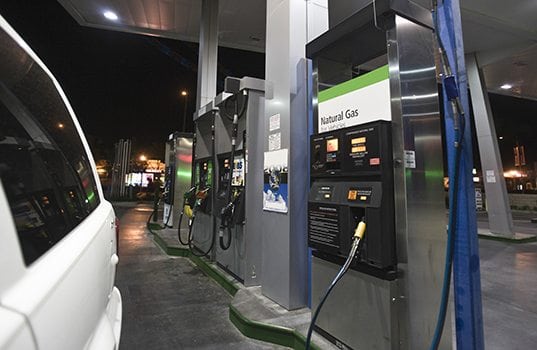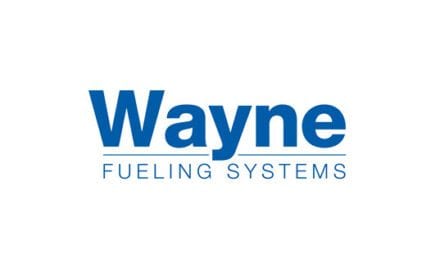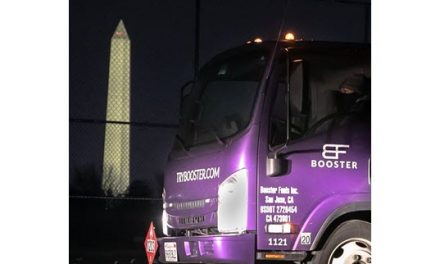By Joe Petrowski
In the United States today we have 242 million vehicles they are powered as follows:
- 3.2 million Hybrids
- 234,000 Plug in Electric
- 150,000 NGV”s (Natural Gas)
So we have 3,584,000 alternate fuel vehicles, or less than 2% of the total vehicle fleet. So the 238,316,000 petroleum vehicles produce 105,000 short tons of co2/year and other heat trapping gases and particulates.
While the fascination of the public policy crowd is with electric, natural gas is the superior alternative and should be vigorously supported by all segments of the transportation fueling industry. The reasons are numerous and powerful.
- Environmental—While a gallon of gasoline produces 20 lbs. of co2 and diesel 23 lbs., a gallon of natural gas produces 16 lbs. So switching half the fleet to compressed natural gas reduces co2 by 30,000 tons/year.
- Price—The gallon equivalent cost of CNG is $1/gallon, and with our domestic abundance, reserves and efficient production costs it will remain in expensive for 50 years. A natural gas based transport system would save $437 billion per year, or almost 3% of current GDP
- Infrastructure—While a conversion to electric would require massive investments in and disruptions to current infrastructure, and threatening the 1.9 million currently employed in fuel services from wholesale to retail, a buildup of natural gas fueling at current fueling facilities would add jobs and capital formation. It would further diversify our fuel supply with that diversification being domestic and add capability to weather threats to our fuel chain.
For electric, our power grid is already at capacity and undercapitalized. Adding 50 million or more electric vehicles would ensure that brownouts and blackouts are in our future, especially with the closing of coal and nuclear plants while relying more of intermittent power like solar and wind. Precious power is better used for desalination, given clean water will be our next commodity crisis.
What we need to lobby for:
- Tax credits and accelerated depreciation for NGV’s, and fueling infrastructure
- HOV lanes and special parking
- A recognition that electric vehicles will always be limited by cost, range anxiety and zero adoption by the small truck, van and SUV segment—the fastest growing and most profitable segment for automakers
Joe Petrowski has had a long career in international commodity trading, energy and retail management and public policy development. In 2005, he was named President and CEO of Gulf Oil LP and elected to the Gulf Oil LP Board of Directors. In October 2008, he was named CEO of the now combined Gulf Oil and Cumberland Farms, whose annual revenues exceed $11 billion and who now operates in 27 states. In September 2013, Petrowski stepped down as CEO of The Cumberland Gulf Group. He is now the Managing Director of Mercantor Partners, a private equity firm investing in convenience and energy distribution. Joe is also a member of the Gulf, Green Print LLC and Yesway where he also serves as leadership advisor.










